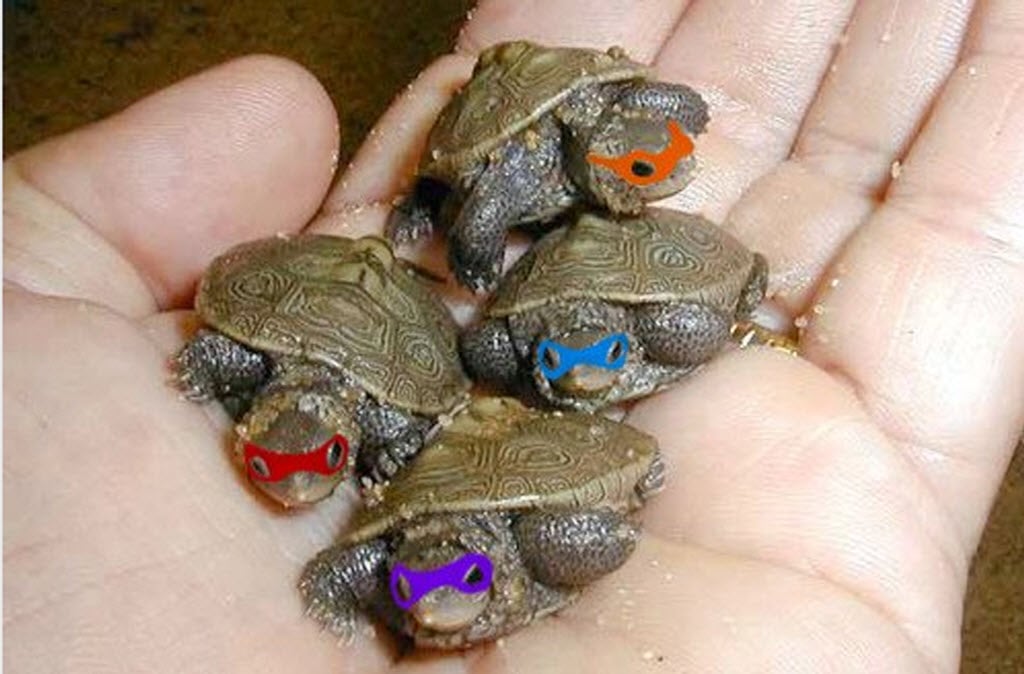Adorable Baby Turtles Talk To Each Other Through Their Egg Shells Before Adorably Hatching
It's in order to co-ordinate hatching efforts, and to become the cutest creatures on the net.

If there is one thing children of the ’90s are sure of, it’s that groups of turtles are awesome at co-ordinating their moves, especially when those moves are ninja-like.

Funny how this never made the news…
A group of research scientists have now discovered that this team-work starts at an extremely early age, finding that baby turtles will co-ordinate their hatching times by communicating audibly with each other through their egg shells.
This adorable finding was made by a team of six scientists from the US, Brazil, and Mexico, who monitored twelve leatherback sea turtle nests on Barra de La Cruz Beach in Mexico.
After transferring the eggs to a protected area on the beach the day after nesting, the researchers waited until day 51 of incubation (lots of beach volleyball during those first 50 days), at which point they started recording and monitoring the sounds emitting from the nests.
The reason for waiting until this point is because turtles generally start hatching around the 53 day mark; 51 days in, the turtles’ ears and “sound production apparatus” are developed enough to allow for interaction.
 The party-dude gene kicks in during the teenage years.
The party-dude gene kicks in during the teenage years.
The sounds produced by the babies fell into four different audio categories, ranging from short chirps, to complex “hybrid sounds” which include inflection, frequency modulation, harmonics, and short silent intervals. In other words, talking.
This latter, more complex category of noises was recorded in nests with eggs only, rather than those with eggs and newly-hatched turtles. The researchers believe this range of hybrid sounds is the turtles co-ordinating their hatching efforts for survival reasons: safety-in-numbers being a long-standing evolutionary defence against predators.
It also debunks previously-held theories that hatching was a passive result of temperature. Seems it’s pure turtle power.
 He can hear how awesome he’s being.
He can hear how awesome he’s being.
So, why hasn’t this behaviour been observed before?
The researchers point out that a general belief that turtles were both silent and deaf – coupled with a number of studies that ‘found’ any noises made were emitted incidentally – has hampered research in this field for decades.
As the study points out, there are 47 species of turtles that have been documented emitting sounds, and that “acoustic signals play an important role in turtle social behavior and reproduction”. In other words, turtles chat about things, too.